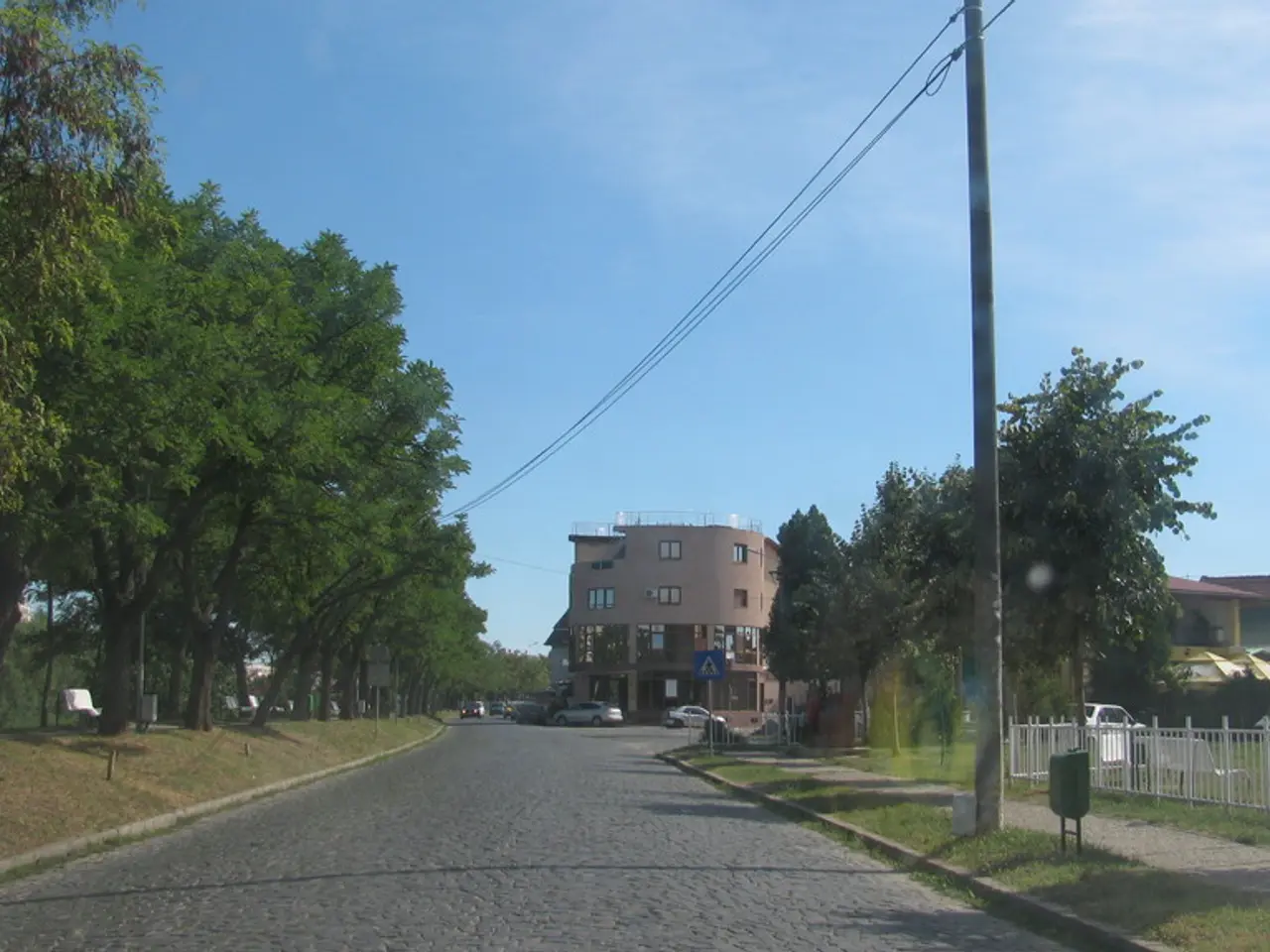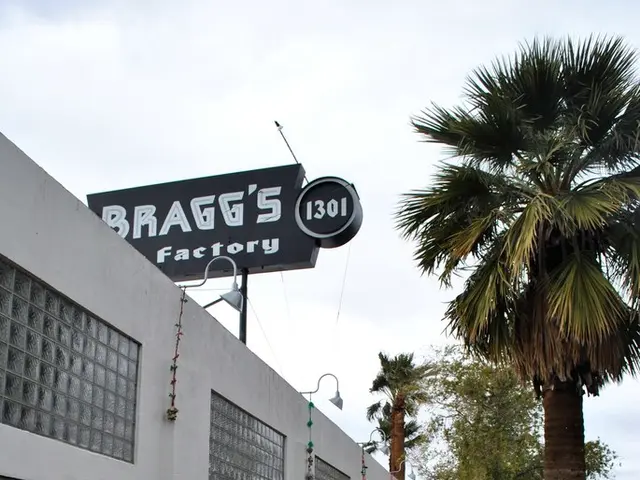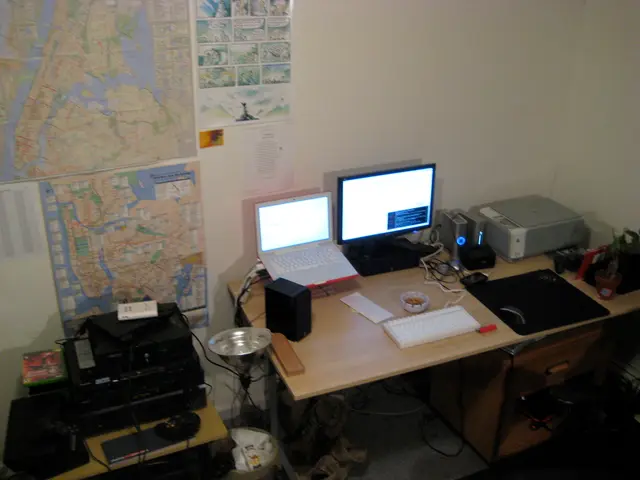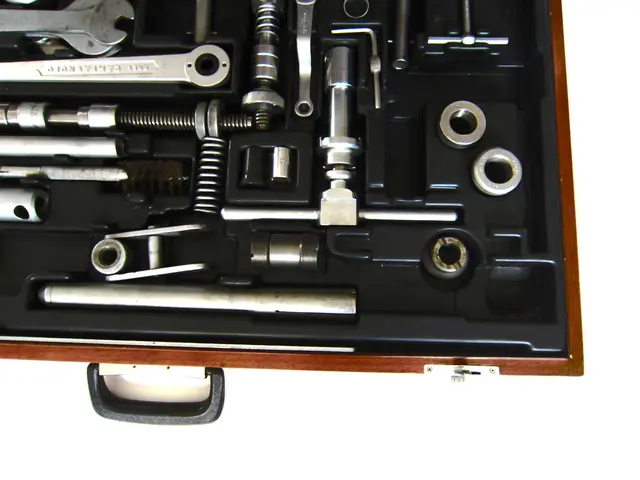Autonomous Model Y Electric Vehicles, Helmed by Elon Musk, poised to Transform Bay Area's Ride-Hailing Market with over 100 Units
Tesla's Autonomous Ride-Hailing Service Faces Regulatory Hurdles in the Bay Area
Tesla's ambitious plans to deploy an autonomous ride-hailing service using Model Y vehicles in the Bay Area are facing significant regulatory challenges. These hurdles, primarily related to California's strict permitting requirements for autonomous vehicles (AVs), could potentially stall the deployment of the service.
The regulatory roadblocks are numerous. For instance, unlike Tesla's Austin pilot where vehicles operate without safety drivers, the Bay Area service must still have a safety driver in the vehicle’s driver’s seat. This is due to the lack of approval for fully driverless operation in California.
Moreover, Tesla cannot brand or market its Bay Area service as a "taxi" or "robotaxi" because California regulations and the California Public Utilities Commission (CPUC) forbid this without full permits.
Tesla currently holds a California DMV testing permit for autonomous vehicles, which requires a human safety driver, and a Charter Party Carrier (TCP) permit that only allows chauffeur-driven, non-autonomous transport. However, Tesla does not hold the necessary CPUC permits to test or operate autonomous public ride services, even with a safety driver present.
To navigate these complex state-level requirements, Tesla has not applied for or received the required permits from California DMV and CPUC for driverless ride-hailing in California. This contrasts with states like Texas, where Tesla received a permit enabling a limited Robotaxi service (with restrictions) through August 2026.
The California DMV filed a lawsuit against Tesla in July 2025 regarding regulatory compliance, further highlighting the challenges Tesla faces in California.
Despite these challenges, Elon Musk announced that Tesla is working to deploy over 100 autonomous Model Y vehicles for a ride-hailing service in the Bay Area. The Bay Area rollout of the autonomous ride-hailing service will initially rely on supervised FSD, with human safety drivers.
Images of a Model Y parked near Levi's Stadium suggest early testing of the vehicles, and there are concerns that regulatory hurdles could indefinitely delay the Bay Area rollout of the service. The planned ride-hailing service could be operational in time for the 2026 Super Bowl in Levi's Stadium, Santa Clara, serving as a high-profile debut for Tesla's autonomous Model Y vehicles.
Elon Musk's plans for the Model Y in the Bay Area are being discussed on the Torque News YouTube channel. The company is actively expanding its fleet and service area, and Tesla's Fremont factory ensures a steady production of Model Y vehicles. California regulations prevent Tesla from labeling this service as a "taxi" or "cab," with some suggesting "Tesla Autonomous eXperience Initiative" as a creative workaround.
In summary, Tesla’s current Bay Area autonomous ride-hailing pilot is constrained to supervised operations with safety drivers due to incomplete regulatory approvals in California. The company is actively expanding its fleet and service area but must navigate complex state-level requirements before launching a truly driverless, fully autonomous ride-hailing service in the Bay Area.
Read also:
- Financial results for Q1FY26 announced by Blue Dart, indicating sales reaching a significant milestone of Rs. 1,442 Crore.
- Financing Secured for Spear AI to Progress Marine Artificial Intelligence Technology
- "Audemars Piguet's 150th Anniversary: Honoring Pioneering Timepieces and Influential Women"
- Financial Developments and Advancements: Groundbreaking Ideas and Current Trends







